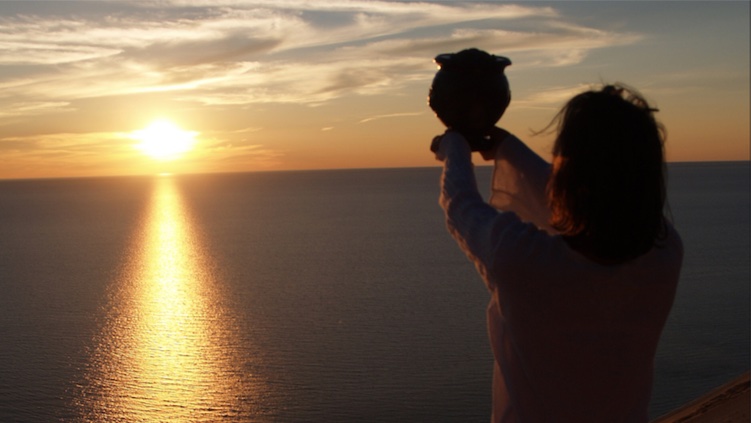As Sure As Death
By Sutapa Das | Jun 02, 2017

Life is like a game of chess – whether you’re the king, queen or pawn, at the end of the game everyone ends up in the box. Unless, of course, you get cremated. Morbid? Depressing? Dark? Though discussions on death are not usually number one on our conversation list, I was invited to the Southbank Centre a few weeks ago to speak on the topic “what happens next?” In an auditorium filled with coffins and sombre lighting, I shared some thoughts on the logic of life after death. Living in a community of devotees, such concepts are seamlessly woven into daily life; birthdays are “appearance days,” my room-mate from Slovenia is “western bodied,” death is the “disappearance day,” and when someone expires we say they have “left their body.” Atma (the soul), samsara (its journey through material bodies), karma (the law which governs that transmigration) and yoga (the means of escape), are four pillars of the Vedic worldview. Comprehensive, consistent, and entirely logical.
As a young monk, I remember enthusiastically volunteering to attend funeral programmes whenever the opportunity arose. For me they were a reality check, a confirmation, and an impetus to dig deeper. Even today, sages in the East cover themselves in ashes and meditate in front of flower-decked funeral pyres as a means to bolster their spiritual urgency. As I prepared for the Southbank presentation, I read about Steve Jobs, who appreciated that death was life’s most effective change-agent. While addressing thousands of Stamford graduates, he commented: “Remembering that you are going to die is the best way I know to avoid the trap of thinking you have something to lose. You are already naked. There is no reason not to follow your heart.” Yet we do indeed avoid it, living in a society where death is sterilised, sanitised and carefully sealed off from public view. They say 72% of people die without writing a will. Maybe they thought it would never happen to them. Maybe they just didn’t want to think about it. Despite our resistance and defiance, time and tide wait for no man.
Death, however, need not be seen as an inconvenient truth, but rather the ultimate meditation to reinstate clarity and perspective into every aspect of our life. Death reminds us of our priorities – those critical things we have to pursue before time runs out. Death brings gratitude. Through the lens of temporality, we perceive everything and everyone we complain about in a new light. Death counters laziness. No point in killing time once you realise that time is actually killing you. Death brings fearlessness. In the face of permanent expiry, all our worries and anxieties pale into insignificance. The problem is, death hasn’t quite registered. For me, that deep-rooted, stubborn obliviousness is the inconvenient reality. Once the certainty of death actually sinks in, only then will I be able to break out and really live life unbound.















